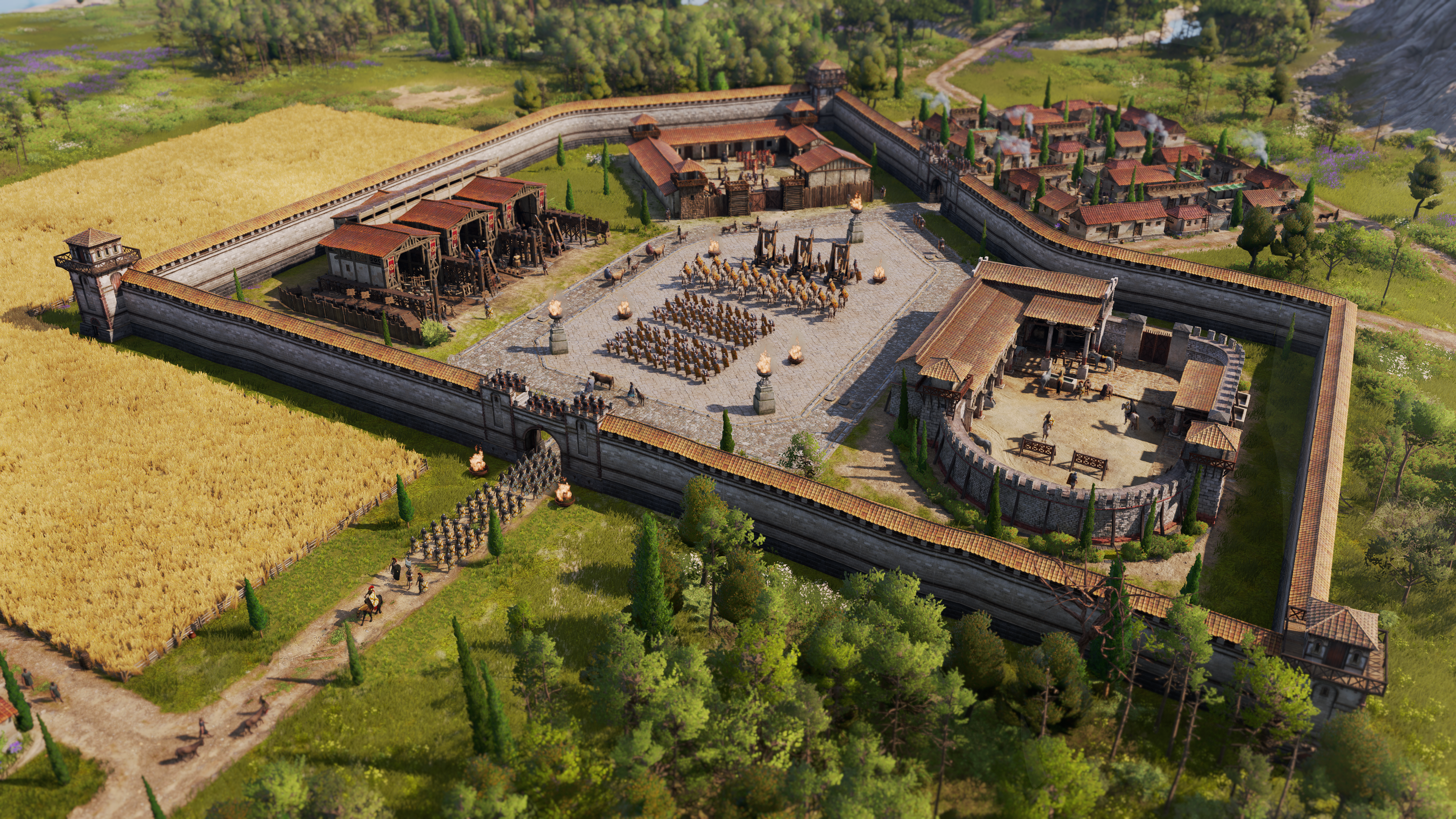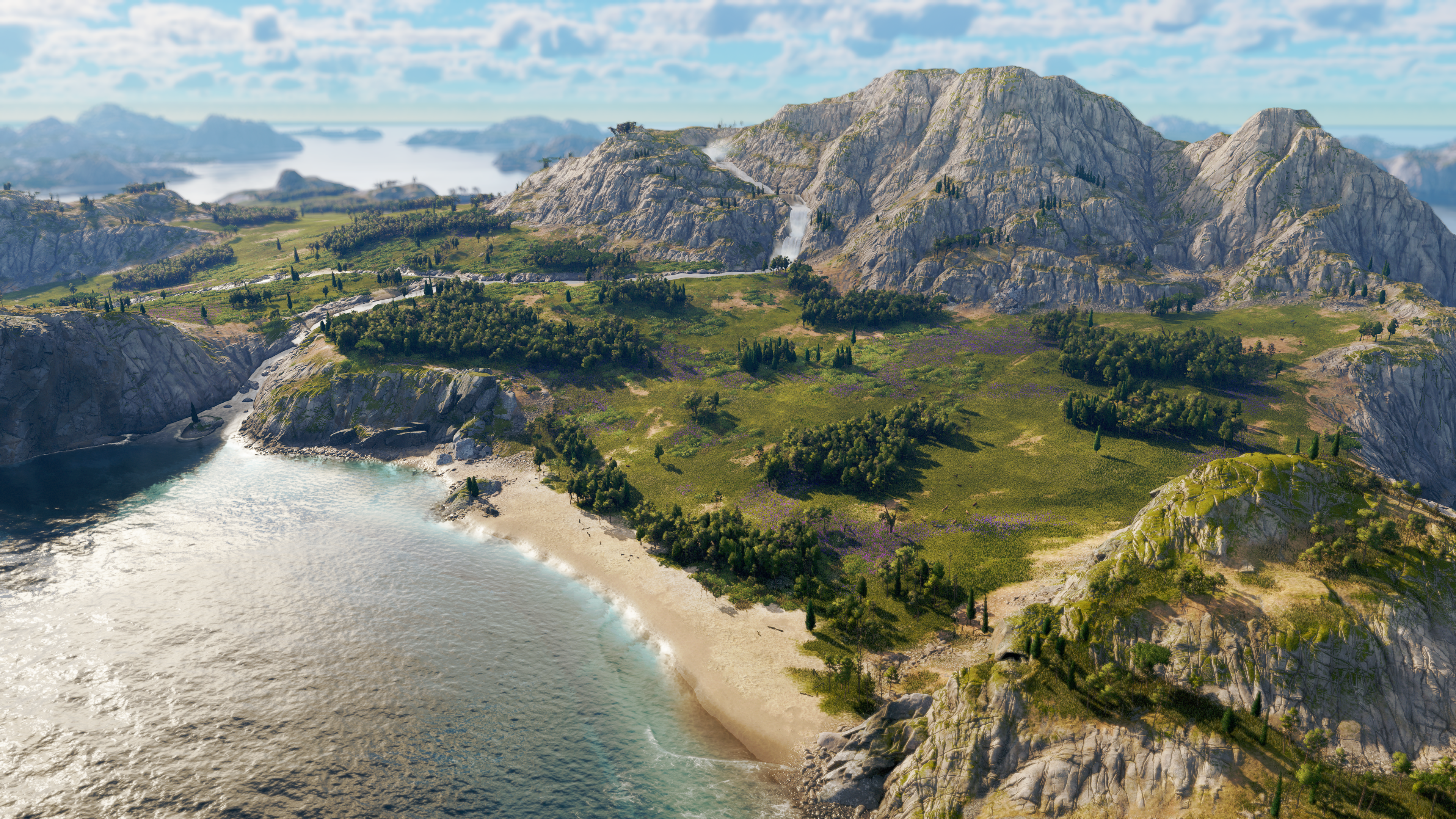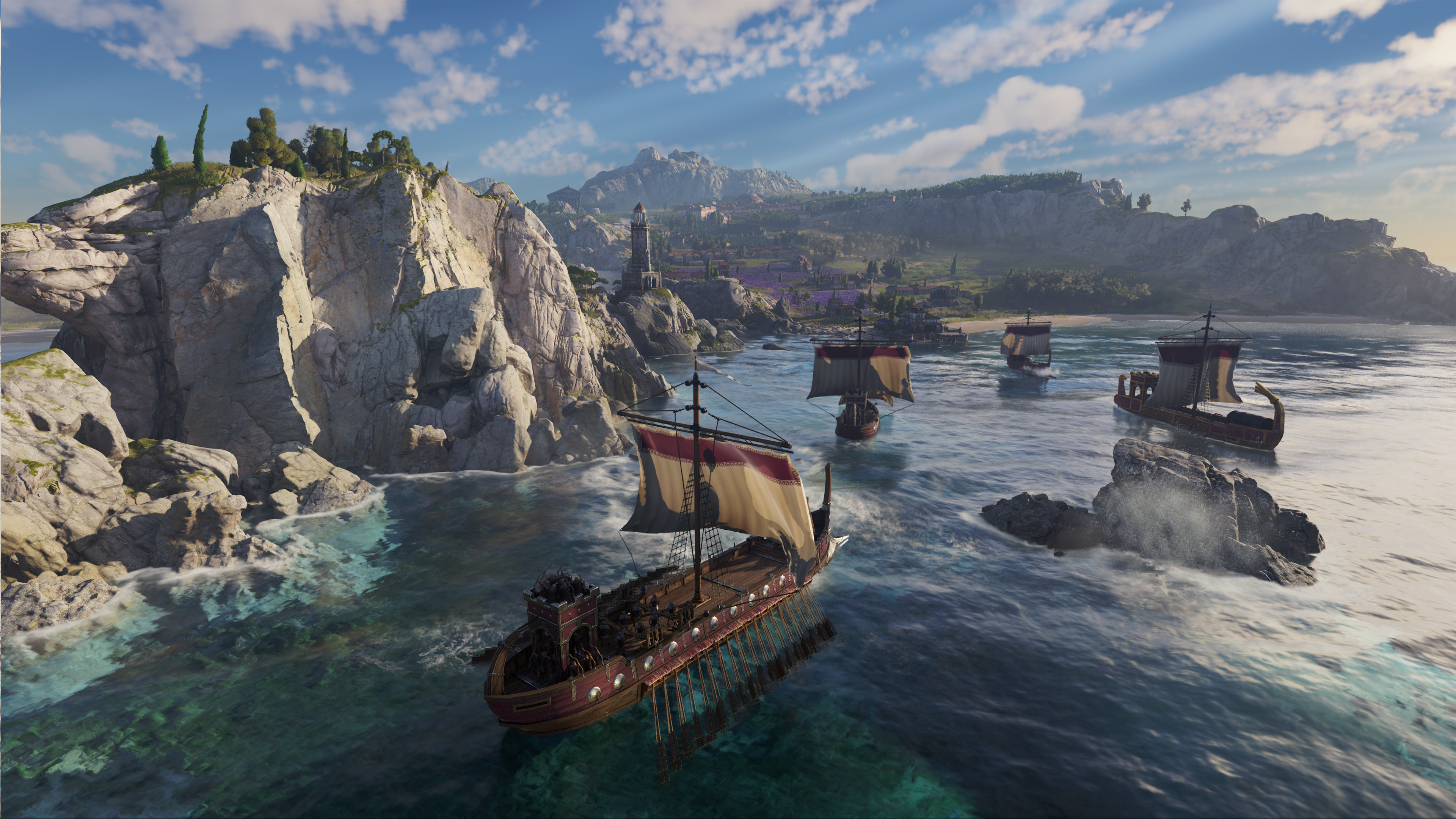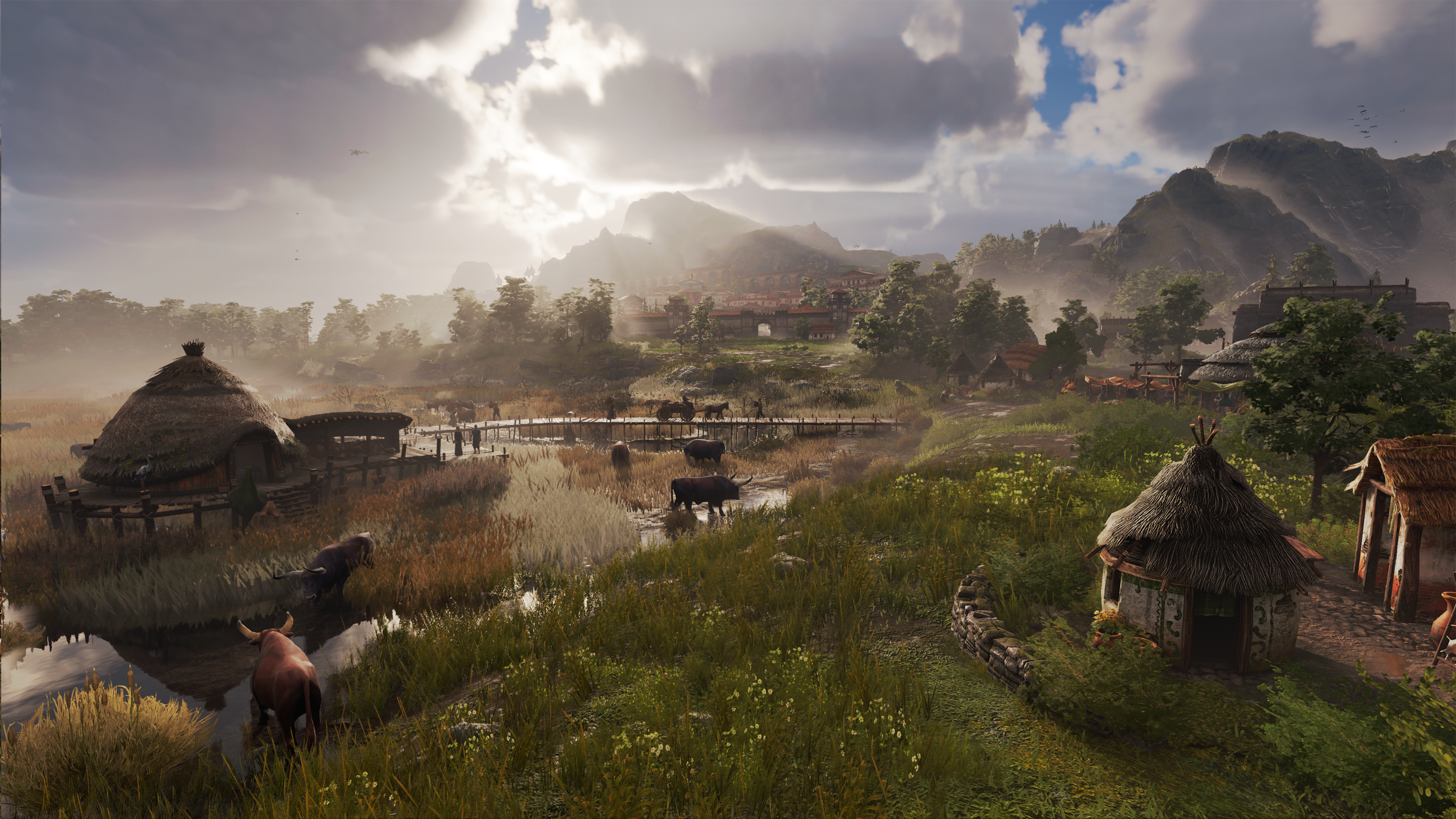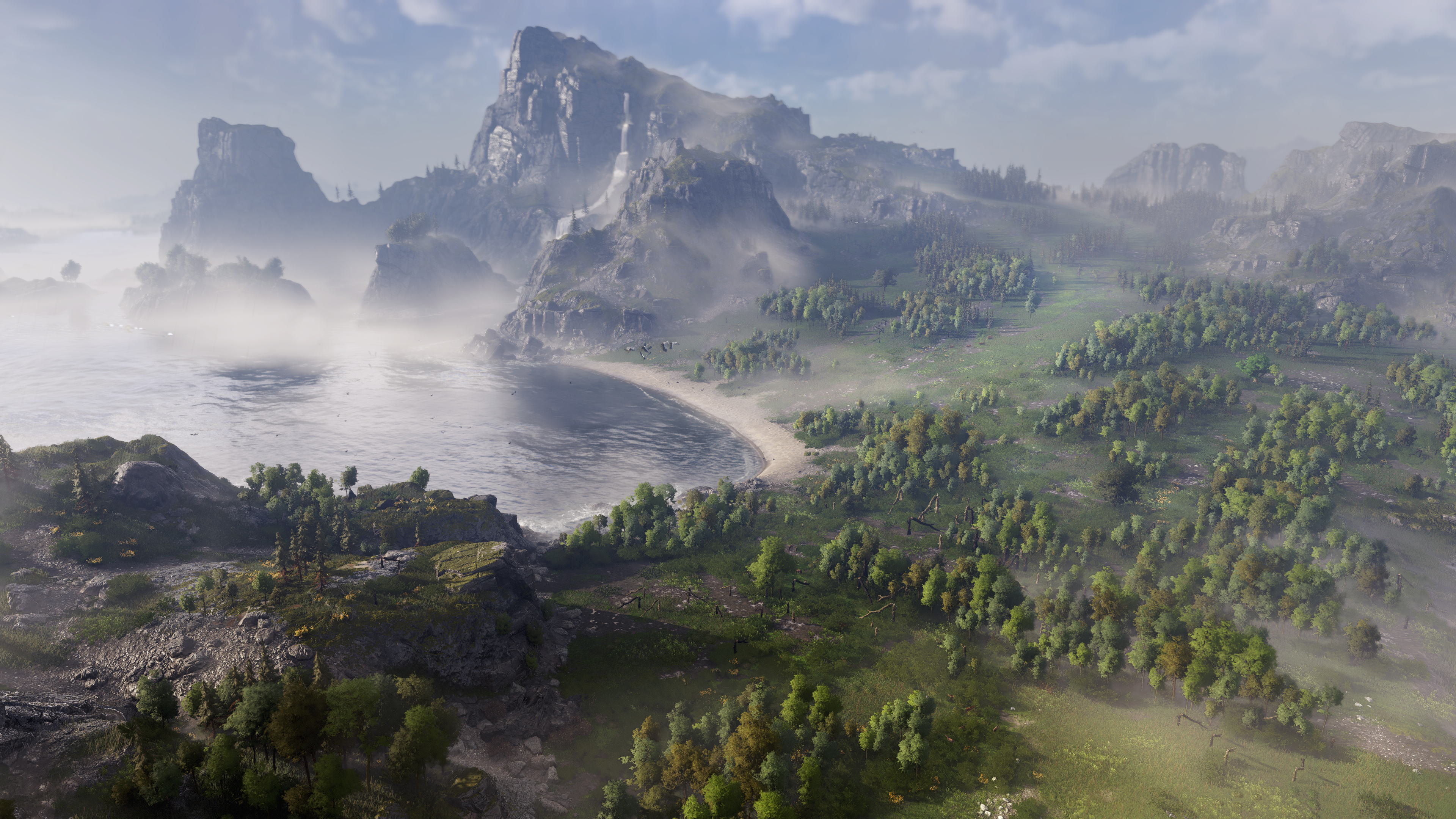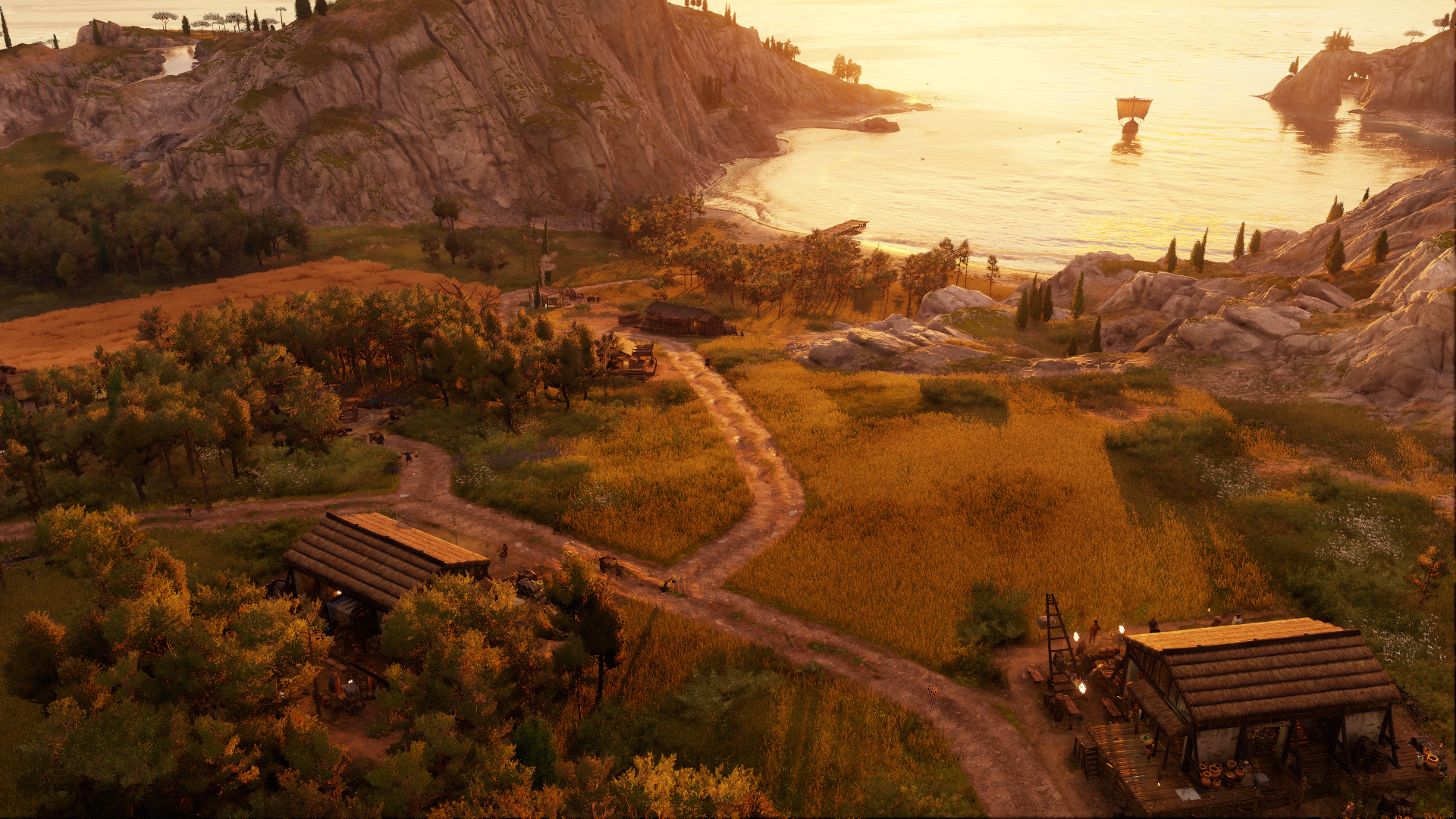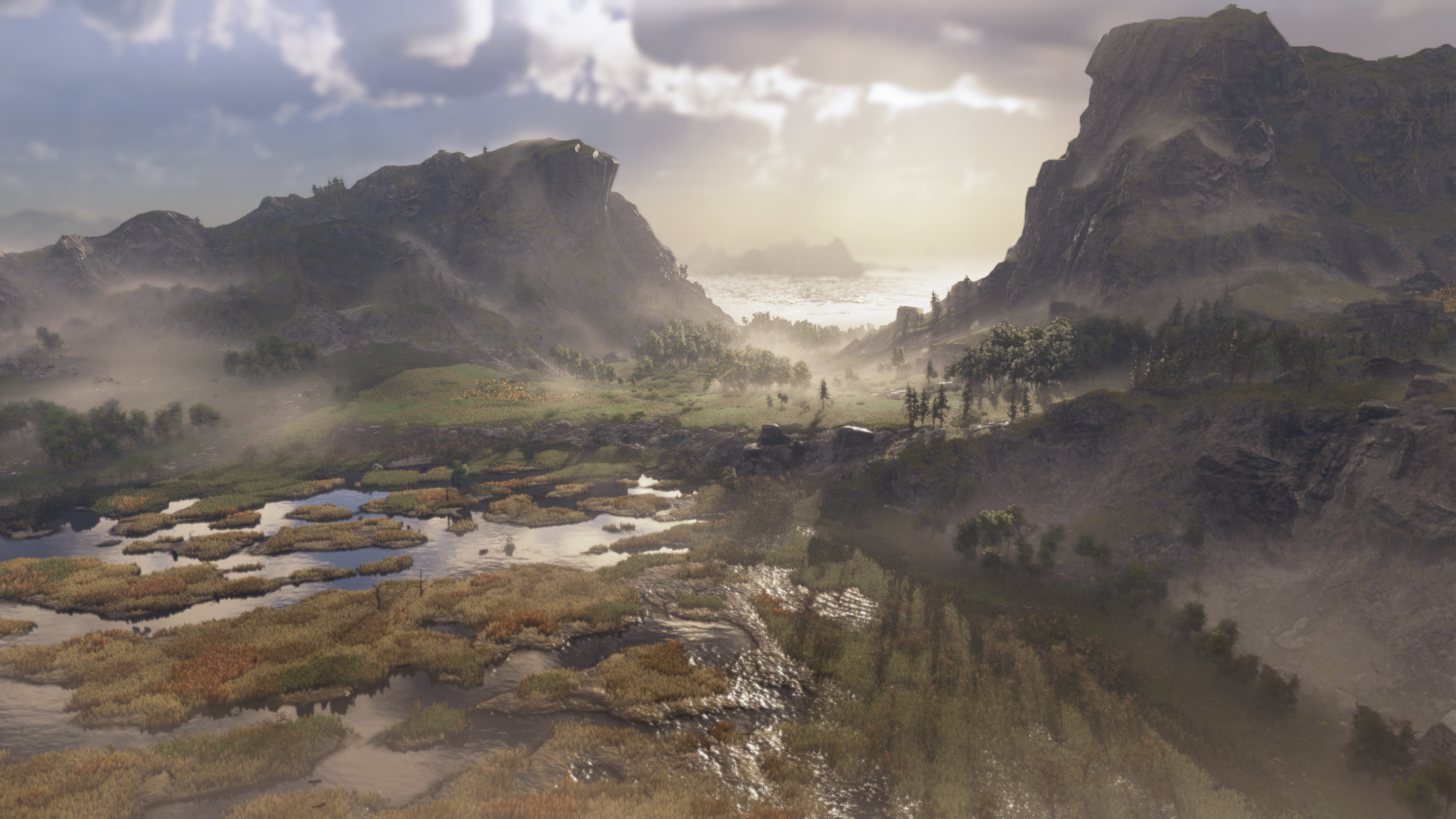As the follow-up to one of the greatest city builders, Anno 117: Pax Romana has a big toga to fill, and I think it might deliver the goods
Rome wasn't built in a day, but at least you can construct a nice aqueduct in a few hours.
Keep up to date with the most important stories and the best deals, as picked by the PC Gamer team.
You are now subscribed
Your newsletter sign-up was successful
Want to add more newsletters?

Every Friday
GamesRadar+
Your weekly update on everything you could ever want to know about the games you already love, games we know you're going to love in the near future, and tales from the communities that surround them.

Every Thursday
GTA 6 O'clock
Our special GTA 6 newsletter, with breaking news, insider info, and rumor analysis from the award-winning GTA 6 O'clock experts.

Every Friday
Knowledge
From the creators of Edge: A weekly videogame industry newsletter with analysis from expert writers, guidance from professionals, and insight into what's on the horizon.

Every Thursday
The Setup
Hardware nerds unite, sign up to our free tech newsletter for a weekly digest of the hottest new tech, the latest gadgets on the test bench, and much more.

Every Wednesday
Switch 2 Spotlight
Sign up to our new Switch 2 newsletter, where we bring you the latest talking points on Nintendo's new console each week, bring you up to date on the news, and recommend what games to play.

Every Saturday
The Watchlist
Subscribe for a weekly digest of the movie and TV news that matters, direct to your inbox. From first-look trailers, interviews, reviews and explainers, we've got you covered.

Once a month
SFX
Get sneak previews, exclusive competitions and details of special events each month!
I do not typically recommend completely tanking a city's economy, potentially ruining the lives of all of its citizens and being heralded as a complete idiot, as a way to learn a valuable lesson. But this is exactly what happened to me in Anno 117: Pax Romana, and I came out the other side really vibing with the direction Ubisoft is taking it in—using its predecessor as a starting point, before fiddling with the formula in interesting ways.
The latest entry in the long-running city building series has been kicked back to the golden age of the Roman Empire, but as I began my first foray into colonising antiquity, it didn't feel a million miles away from my sojourn as a governor in Anno 1800.
Everything from the moment-to-moment city-building to the broad structure of establishing a small, sustainable colony before setting off across the ocean to exploit more resources felt incredibly familiar, despite the gulf between the two eras.
This familiarity did make the establishment of my first colony nice and straightforward, of course, as I followed the missions doled out by my mentor. I briskly constructed a slew of production chains across the island, feeding my citizens' desire for the basic necessities and expanding relentlessly. If you've played Anno 1800, you'll find getting started pretty effortless.
The good news is that this sense of over-familiarity was short-lived. Anno 117 is not a table-flipping sequel full of endless experimentation, but from the four hours I spent playing it, it messes around with the setting in fun ways and shakes things up just enough that the Roman Empire feels like a new frontier.
Expensive habits
It all clicked when my economy collapsed. The early campaign missions are designed to get your first colony up and running and mostly self-sufficient, and being very aware that I had limited time, I was trying to smash through it, rapidly expanding without letting my economy stabilise. So I'd been running a deficit for a while. And then I just completely ran out of cash, prompting the game to question my suitability for the job.
There was an obvious solution. My warehouses were bursting with goods I could put up for sale, allowing my rivals to gobble them up, netting me a chunk of cash. But I wanted to have a nice, stable colony that didn't need to rely solely on trade to survive.
Keep up to date with the most important stories and the best deals, as picked by the PC Gamer team.
Rearranging my colony proved to be the solution to my economic woes. This is where Anno 117's building bonuses came into play, which make city building feel even more tantalisingly puzzle-like. Simply placing a bakery within a dense residential area immediately increased the income generated by the entire area, though like a lot of buildings, it came with a trade-off: baking all that bread also increased the likelihood of a fire breaking out.
A pig farm, meanwhile, reduces the happiness of the surrounding area, because while pigs are wonderful, nobody wants to live near these grunting poop generators.
With all these different bonuses and negative effects, often you'll have to decide if happiness or profit are more important for you at that moment. If a civil revolt is looming, and you don't have the peacekeeping infrastructure to handle it, pissing people off isn't going to be the smart play. But if your coffers are dwindling, that quick cash injection is going to look pretty seductive.
When you couple this with other location-based mechanics, like the limited range of storage buildings and the need for resource-generating buildings to be placed within specific areas, the layout of your city becomes a top priority—even more so than in 1800.
Building bonuses are especially relevant to research. Some buildings generate knowledge from their sphere of influence, which can then be spent in a meaty research menu divided into economic, civil and military trees. Discoveries run the gamut from bonuses for specific buildings, to substantial upgrades, to enhanced ships. It's quite different from 1800's research mechanics, introduced in the Land of Lions DLC, and benefits from being wider-ranging and considerably less fiddly.
Also significant is the addition of deities. If you are a city builder of a certain vintage, you may remember how gods played a big role in games like Pharaoh and, even more so, Zeus. Now, the gods of Anno 117 are not going to be showing up and flexing their muscles, but their impact is much greater.
Divine intervention
With the ocean playing such a big role in Anno 117, you might want to make Neptune your patron deity, as dedicating yourself to the big lad will, over time, earn you helpful bonuses, including increasing the swiftness of your naval vessels. There's an entire religious progression system built into the game, with the belief your colonies generate fuelling it.
A religious building like a sanctuary, for instance, generates both happiness and belief within its area of effect, and it's through this resource that you can start accessing your chosen god's handy bonuses.
You can also switch deities—and not just to Roman ones. The Romans were extremely pragmatic when it came to religion, and players are encouraged to carry on this tradition.
Which conveniently brings us to a feature that's cropped up in a bunch of Anno games, but which has been given some ancient flavour here. While your first colonies will be in Anno's facsimile of the Mediterranean, you can also hop up north, where you can start colonising Celtic lands, splitting your attention and resources between two very distinct areas. And like Anno 1800, it sounds like more provinces will be appearing after launch.
I wasn't able to mess with the Celts in my playthrough, but Ubisoft did tease what we'll be able to expect when we can eventually expand our reach to new lands. While you'll still be playing as a Roman governor, bringing with you Roman inventions, you'll still be able to let your Celtic citizens maintain their original identity rather than squashing their culture.
Expanding north, then, means new flavour, new resources, new buildings—which will still be present even if you choose to focus on the Romanisation of your far-flung colonies.
The choices you make about what culture to promote or what god to worship don't take place in a vacuum, either. Your citizens will have some thoughts about your plans, as will other characters, like your rival governors, or the Emperor himself. So this is going to affect your domestic stability as well as diplomacy.
From time to time you'll also receive requests from other governors, or your citizens will need you to resolve a dispute, like some workers who are not particularly satisfied with their terrible boss. In that case, you might compensate them for ill-treatment and appoint a new overseer, which will cost you some cash but give you a timed bonus to happiness. Or you could just embrace a life of corruption and take a bribe from the boss to look the other way.
After a few hours, my previous economic woes were a distant memory. Sure, sometimes I got into the red, but only briefly, the result of some big projects, and between trading and bonuses I always had a way out of any hole I'd dug myself into.
I also had a bunch of different colonies, along with an internal trading network that shipped goods from my primary colony to my new ones. This meant I could quickly build them up, after which I could start shipping their unique resources back home, allowing me to feed the needs of my increasingly demanding and massive population.
Water park
As I approached the end of my Roman holiday, I finally got to start my first massive engineering project: the aqueduct. These bring fresh water to your colonies from the mountains and can be used to help stop your settlements from turning into a pile of singed timber, improve your agricultural industry and will become necessary for certain public buildings.
Constructing one is a big undertaking that requires a vast amount of resources, and to be honest I did find it a touch fiddly, especially when the aqueduct intersected with my roads. But it was also exciting to embark upon a meaty engineering challenge like this—like my colony was all grown up. And while I couldn't go any further, it hinted at a turning point—like embracing the Industrial Revolution in 1800—with a whole set of new challenges and objectives.
There was one other major new feature that Ubisoft wasn't ready to show off: land battles. Wars are no longer exclusively conducted by navies, so there's this whole mini-RTS layer that exists inside this city builder.
I'm yet to find a convincing reason for cramming military conflicts into a city builder, and while Anno 117 might change this, it's a relief to know that this is all optional. By tweaking the settings you can just focus on the city building, and even if you keep the default settings, your AI rivals are actually pretty friendly.
Anno 117 won't be launching until the end of the year, but these first few hours have the polished gleam of a game that's already out. It's quite the looker, too, with city streets bursting with tiny details and lively energy. And it's already so easy to lose yourself in all these production chains, engineering projects and trade ventures. With Anno 1800 as its foundation, alongside all these tweaks, twists and dense Roman flavour, I've got high hopes.

Fraser is the UK online editor and has actually met The Internet in person. With over a decade of experience, he's been around the block a few times, serving as a freelancer, news editor and prolific reviewer. Strategy games have been a 30-year-long obsession, from tiny RTSs to sprawling political sims, and he never turns down the chance to rave about Total War or Crusader Kings. He's also been known to set up shop in the latest MMO and likes to wind down with an endlessly deep, systemic RPG. These days, when he's not editing, he can usually be found writing features that are 1,000 words too long or talking about his dog.
You must confirm your public display name before commenting
Please logout and then login again, you will then be prompted to enter your display name.
